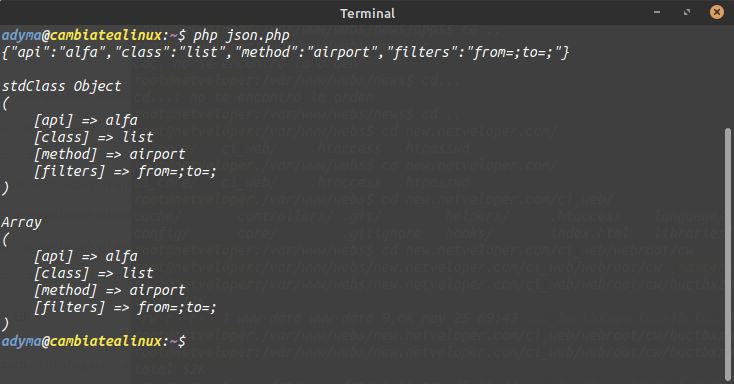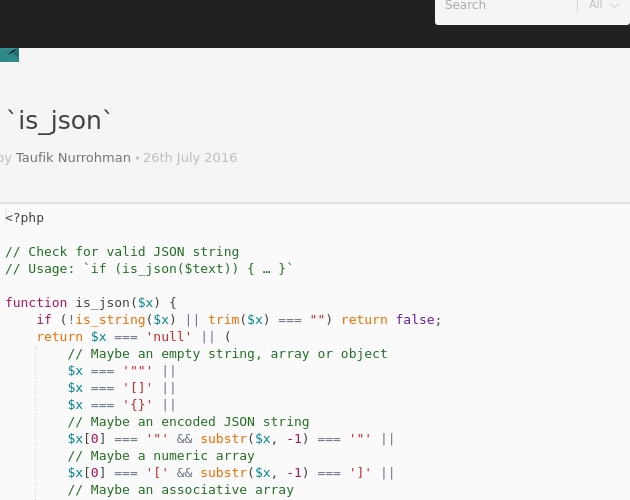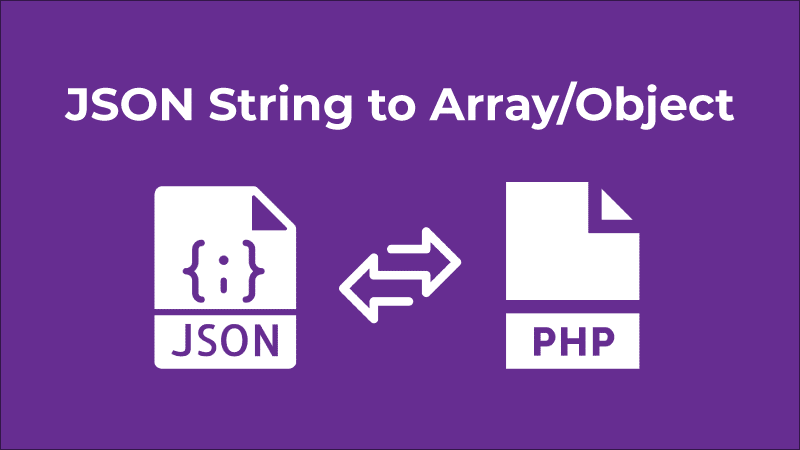
Serial.
PHP JSON DECODE AS ARRAY SERIAL
Open serial communications and wait for port to open: that you want to connect to (port 80 is default for HTTP): with the IP address and port of the server Initialize the Ethernet client library
PHP JSON DECODE AS ARRAY CODE
I've been doing a bit more work to the code and now have the following: #include īyte mac = // Google Correct?Ĭould you run this code for me and post everything that is being printed out to the serial console? I'm afraid there might be some parsing that must be done before we get to parsing the JSON. Hope this helps, as always, any questions, please drop them in the comments.So, I'm assuming when you run this you print out a lot more information than just the JSON. In general, these two functions have the following common uses –Įncoding is usually responsible for returning data from an API, it will convert an array datatype to JSON data for the consumer.ĭecoding is usually responsible for converting raw JSON data in the form of a string into either a Object(StdClass)or an Array for further use in the application.

One especially is the JSON Constant documentation which relates to the potential options you can use within these function calls. There are some useful references on the PHP documentation website that are worth a quick glance over. Let’s take a look at the output of $myArray

$myArray = json_decode($myJsonString, true) Īs you can see, the json_decode() function is slightly different here, instructing the function to return the data as an associative array. Now let’s flip it the other way, we have a string in the form of JSON, but we want to make it usable in our project.įirst up, we need to define the string $myJsonString = '' This method of encoding works similarly with a more advanced array with nesting for example. Let us build a dummy data array that is prepared for encoding into properly formatted JSON. Now we’ve had an introduction to the functions let’s get our hands messy with some coding examples. An optional options parameter that takes some of the PHP constants available.An optional depth integer to specify any user recursion depth if required.An optional Assoc boolean to instruct whether to bypass conversion to an object and to produce an associative array instead.The decode function has the following parameters Now json_decode() on the other hand, has a completely different goal, which is to only attempt to convert a JSON string to a PHP object or array. An optional depth integer, instructing the function of how ‘nested’ the value you are passing in.

PHP JSON DECODE AS ARRAY HOW TO
In this tutorial-based article, we will learn about the json_encode() and json_decode() functions, what parameters they use, and finally how to utilize them in real-life code. Encode and decode functions in PHP are usually used with one of the following types string and array. These two JSON helper functions are particularly dedicated to encoding and decoding JSON data. PHP ships out of the box with some great native functions for working with JSON (JavaScript Object Notation), specifically json_encode() and json_decode().


 0 kommentar(er)
0 kommentar(er)
